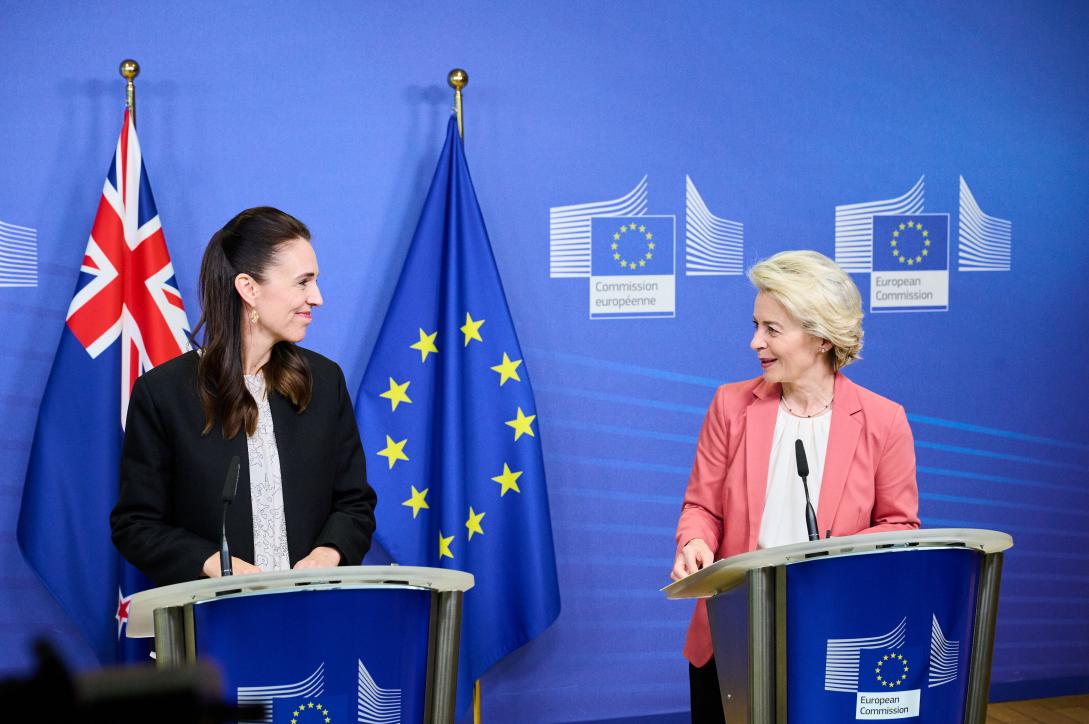EU-NZ FTA Agreed

At their meeting on 30 June 2022, President von der Leyen and PM Ardern concluded negotiations for a Trade Agreement, which is set to open significant economic opportunities for companies and consumers on both sides. The deal also includes unprecedented sustainability commitments, including respect of the Paris Climate Agreement and core labour rights, which are enforceable through trade sanctions as a last resort.
European Commission President, Ursula von der Leyen, said: “New Zealand is a key partner for us in the Indo-Pacific region. This trade agreement brings major opportunities for our companies, our farmers and our consumers, on both sides. It can help increase trade between us by 30%. It includes unprecedented social and climate commitments. This new agreement between the European Union and New Zealand comes at an important geopolitical moment. Democracies – like ours – work together and deliver for people.”
Executive Vice-President and Commissioner for Trade, Valdis Dombrovskis, said: “This is a new generation of trade deal, with both sides set to make real economic and environmental gains. New economic opportunities are vital as we strive to recover from the twin shocks of COVID-19 and Russia's aggression against Ukraine. This deal will unlock a raft of fresh export opportunities for EU businesses and SMEs for goods and services. It also contains the most ambitious sustainability commitments in any trade agreement ever. This proves we are already delivering on our promise to get more added value from our trade deals in terms of sustainability.”
New export opportunities for businesses big and small
The agreement will provide new opportunities for businesses by:
- Eliminating all tariffs on EU exports to New Zealand.
- Opening the New Zealand services market in key sectors such as financial services, telecommunications, maritime transport and delivery services.
- Ensuring non-discriminatory treatment to EU investors in New Zealand and vice versa.
- Improving access for EU companies to New Zealand government procurement contracts for goods, services, works and works concessions. The New Zealand procurement market is worth some €60 billion a year.
- Facilitating data flows, predictable and transparent rules for digital trade and a secure online environment for consumers.
- Preventing unjustified data localisation requirements and maintaining the high standards of personal data protection.
- Helping small businesses export more through a dedicated chapter on small and medium enterprises.
- Significantly reducing compliance requirement and procedures to allow for quicker flow of goods.
- Significant commitments by New Zealand to protect and enforce intellectual property rights, aligned with EU standards.





